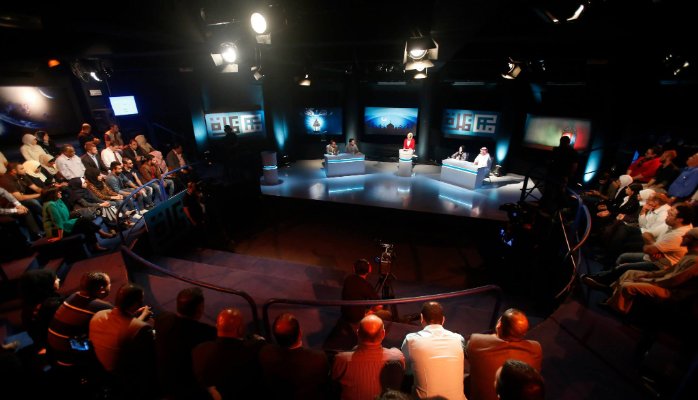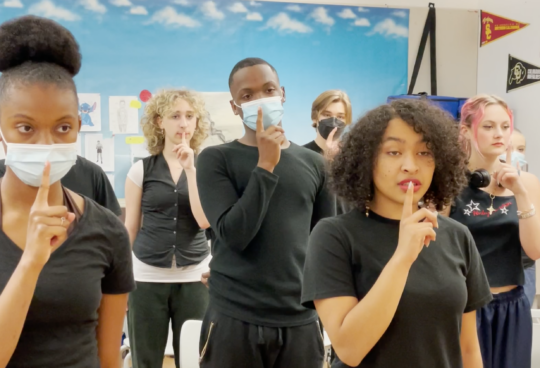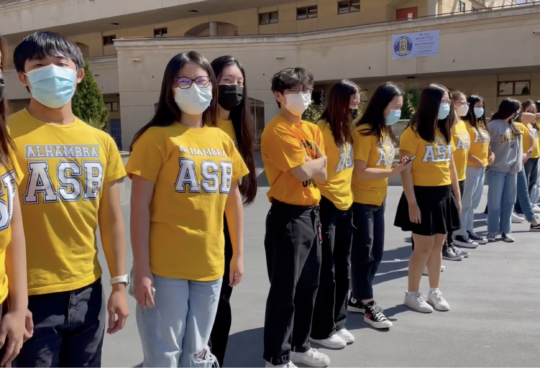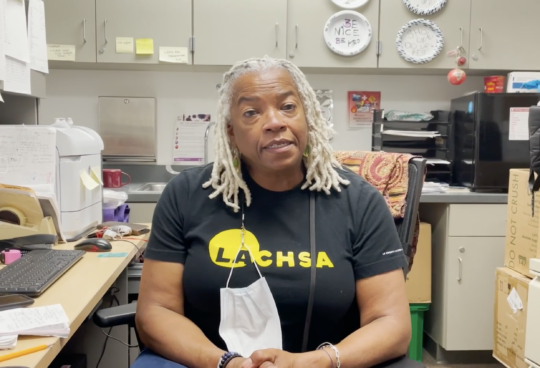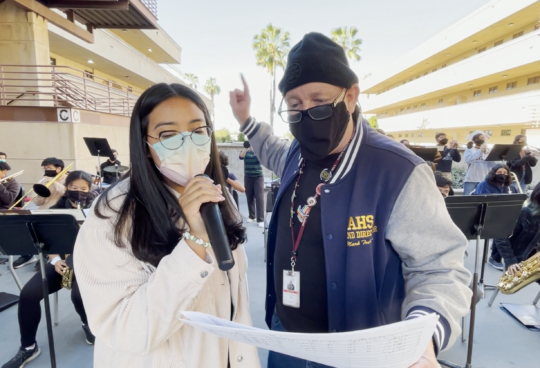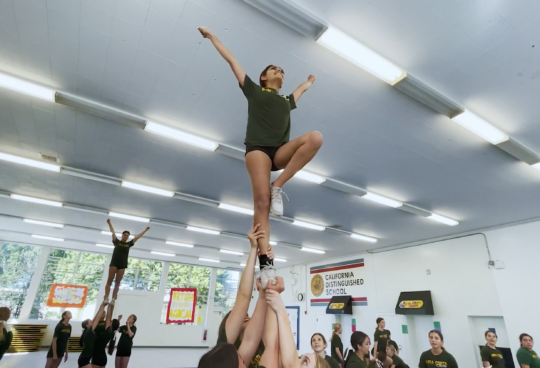Video Platform Gives Arab Youth, Women a Voice
Intel IQ: Online Video Platform Crowdsources Next Generation of Arab Democracy Leaders
One social entrepreneur uses online video debate to connect younger generations and underserved populations with leaders of the Arab world.
Belabbès Benkredda’s view of the world changed after the Arab Spring of 2010. The social entrepreneur witnessed the power of young people across Tunisia, Libya, Egypt and Yemen using social media to stage political protests that toppled dictatorships.
“It was such a eureka moment,” recalled Benkredda, a German citizen doing diplomacy work in Dubai at that time. “After decades of tyranny and authoritarian rule, you suddenly saw thousands revolt against their unelected leaders.”
When public opinion is driven almost exclusively by leaders who are 50- to 80-year-old men, public opinion is easily skewed across the Arab world, he said.
Benkredda saw the Arab Spring as the public sphere in action, with young people in particular tapping new technology and the internet to change their world.
“Sixty percent of the region are youth, and they don’t have a say,” he explained. “If you watch Arab TV, you don’t realize 50 percent of the population are women. It’s such a loss of potential when a small minority are driving what people think.”
In 2012, 32-year-old Benkredda launched an online video platform called the Munathara Initiative, which comes from the Arabic word for “debate. By giving Arab youth a place to voice opinions, Benkredda believes new leaders will emerge. It’s a way, he says, of “crowdsourcing” leadership.
Today, the online TV debate forum has 70,000 members across the Arab world. Its goal is to revolutionize how people form public opinion in the Middle East, a region where Benkredda believes education, not military force, is the key to unlocking peace.
Open to anyone able to create and upload a 99-second opinion video, the Munathara site has become a successful vehicle for inspiring debates about the most pressing issues in the Middle East.
Munathara allows people to voice their opinions – regardless of age, social status, gender, education or even location.
Now with more than 70,000 members across the Arab-speaking world participating on Munathara, the site is carving a pathway for future leaders in the Middle East. It’s given dozens of young people the opportunity to team up with established leaders – today, mostly older men – on televised debate shows seen across the Arab world.
Every month, Munathara posts a controversial debate topic. On the videotape, a person must argue a pro or con position to the debate topic. Once a video is uploaded to the site, viewers can vote for their favorite future opinion leaders.
Participants generally range in age from 16 to 30 years old, and, according to Benkredda, most find out about the competition through the Munathara Initiative Facebook page.
“We chose video because video is inclusive,” said Benkredda. He said that in Egypt or Yemen, about 20-30 percent of people don’t read or write.
“Video is obviously the closest thing to face-to-face communication.”
Benkredda holds community workshops in Morocco, Algeria, Tunisia, Libya, Egypt, Lebanon, Palestine, Jordan, Turkey (for Syrian refugees), Kuwait and Yemen. The workshops help young people refine their debate techniques before uploading their opinion videos for the competition.
“These workshops are giving the most neglected voices the chance to be seen and heard on television and the internet,” Benkredda said.
Benkredda said one of the keys to success is Munathara’s algorithm, which identifies meaningful opinions rather than just measuring social media buzz.
When viewing videos, online voters judge participants on two criteria: their point of view and also their performance. Even if they disagree with a participant’s position, voters can still rate high for strong arguments.
“It helps identify unique points of view worthy of national debate that would otherwise be buried,” Benkredda said.
“Munathara’s metrics are not about noise, views, follows, retweets or likes,” he said. “It’s about who deserves to lead public opinion on a certain topic. It’s about who’s the best debater.”
The rising debaters are breaking into mainstream.
From Munathara’s online competition, two winners are selected to pair up with an opinion leader in the Arab world to defend their position during a live televised debate broadcast on Al Jazeera throughout Arab region. Then the debate show is uploaded on Munathara’s YouTube channel.
By covering topics such as freedom of speech, women’s rights, western conspiracies against the Arab world, Munathara debates are igniting public conversation.
But Benkredda said it’s critical to nurture an environment where opinions can ultimately evolve, rather than polarize important conversations.
“We want participants to walk out understanding the value of constructively engaging with people you disagree with,” explained Benkredda. “When opposing views clash, that’s when constructive ideas evolve.”
Meriem L’Heni is a high school senior from Nabeun, a coastal town in the northeastern Tunisia. She witnessed first-hand the power of public demonstrations that forced Tunisian President Zine El Abidine Ben Ali to flee the country.
“I was the youth speaker for the first elected President in Tunisia, Dr. Moncef Marzouki,” L’Heni said via Skype.
L’Heni, who speaks three languages, said that Munathara turned her hobby of public speaking into serious debate. She learned to improve her listening skills, structure debates on rational ideas, extract solutions and find common ground.
Because of her ardent social activism, L’Henri won a full scholarship to Watson University in Boulder, CO. Eventually, she wants to return and contribute to Tunisia’s new path of democracy.
“I can be the person who fights for justice, equality and democracy,” she said.
Benkredda sees technology as a great enabler for those who want to impact change.
Since 2013, when 3G wireless technology was released, 120 million Arabs gained internet access, he said. With 400 million people in the region, that means at least one in four Arabs are now connected.
While many are still defining the results of the Arab Spring even as it nears its fifth anniversary, Benkredda knows Munathara is at an epicenter of change.
“This is a rare opportunity for young people, women and minorities to be involved in the development of democracy in the Arab world,” he said.


